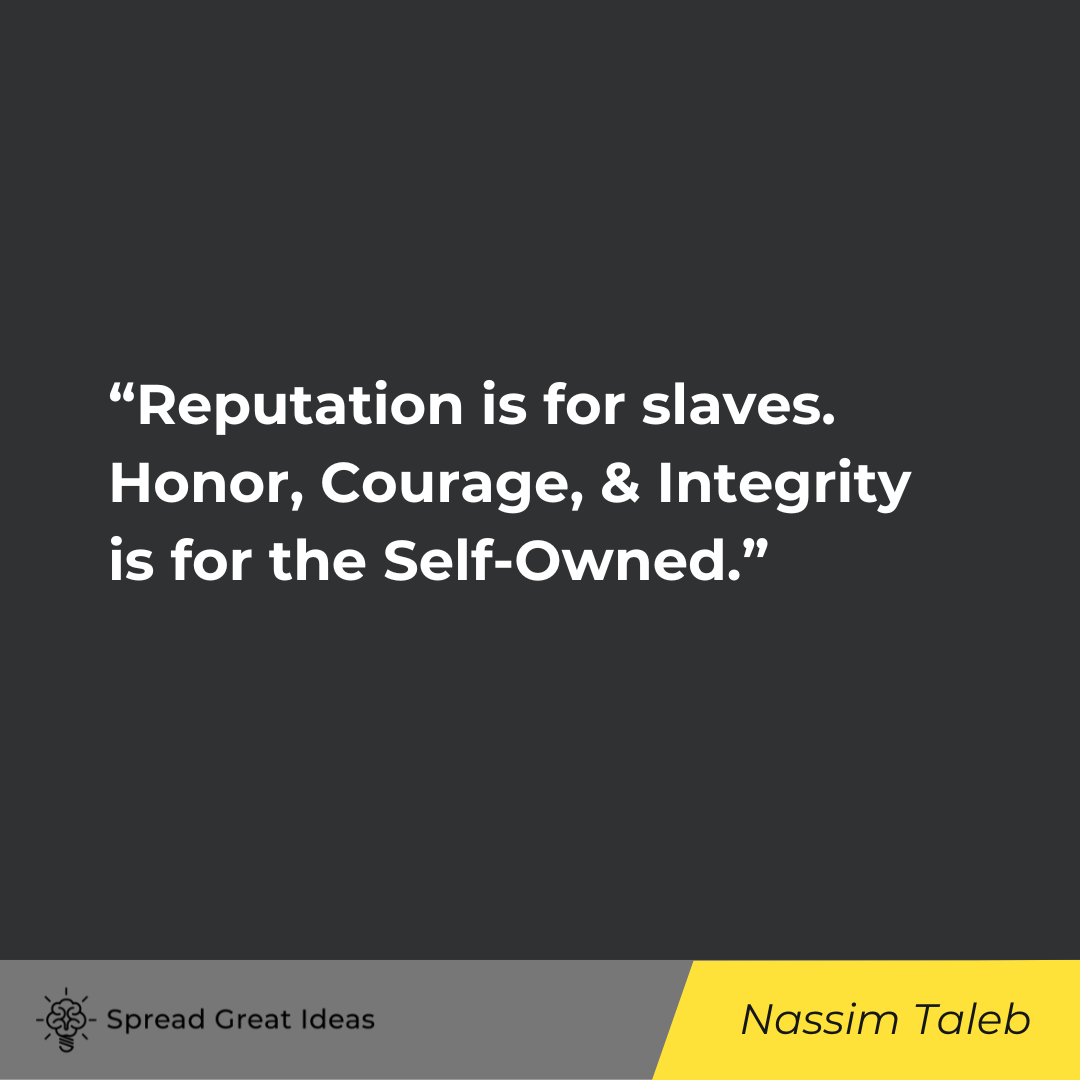Table of Contents
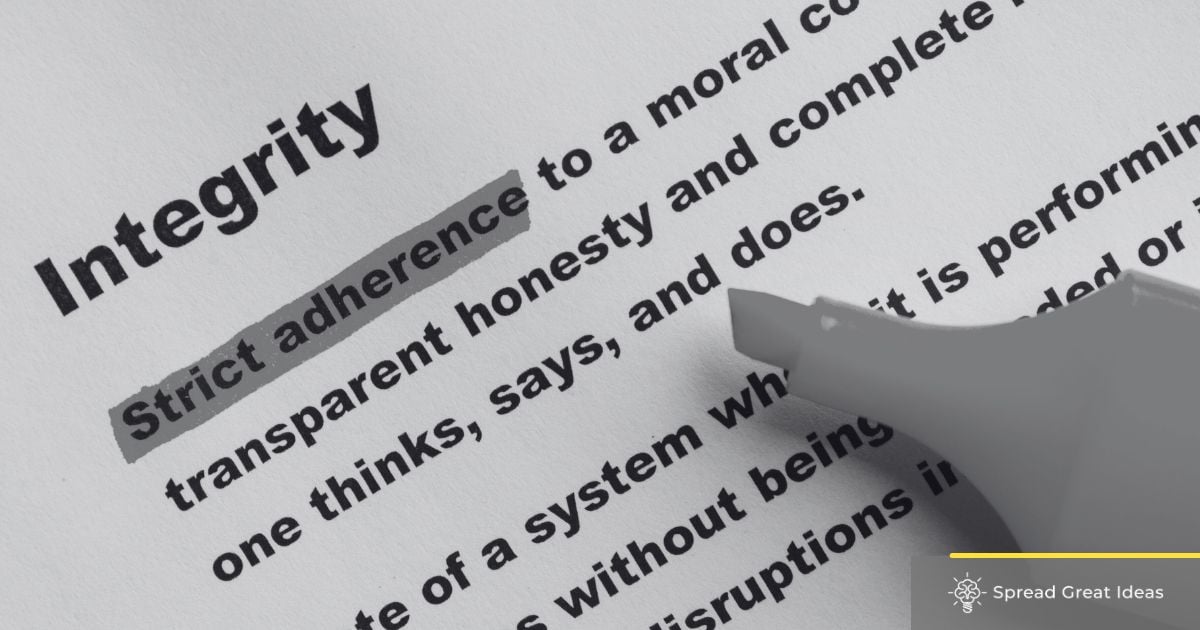
I don’t know if Charlie’s silence here today is right or wrong; I’m not a judge or jury. But I can tell you this: He won’t sell anybody out to buy his future! And that, my friends, is called integrity. That’s called courage. Now that’s the stuff leaders should be made of.
– Al Pacino as Lt. Col. Frank Slade, Scent of a Woman
Integrity. It is the quality of being honest and having strong moral principles. People often say they have integrity, but the assertion begs a raised eyebrow. Claiming to have integrity is the obvious act of someone who lacks it. The truly virtuous don’t boast about it but instead proceed about their business.
Is honesty always the best policy? No. There are many exceptions to the rule. It would be cruel to tell a child that the Santa at the mall is only pretending to be the real guy.
Likewise, practicing integrity is inadvisable if you are a politician. Suppose you make a campaign promise that you actually delivered on. That would create an ugly precedent, as your voters would then expect you to do even more work delivering on even more promises. You would barely have a second to spend alone with the special interest groups that line your pockets. Furthermore, fulfilling a promise would mean you could no longer make that same promise while you’re up for reelection.
But despite all the above exceptions, integrity is an essential character trait for leadership. The following collection of quotes explores the concepts of integrity, honesty, and character.
Quotes About Telling the Truth
Mahatma Gandhi
“Truth never damages a cause that is just.”
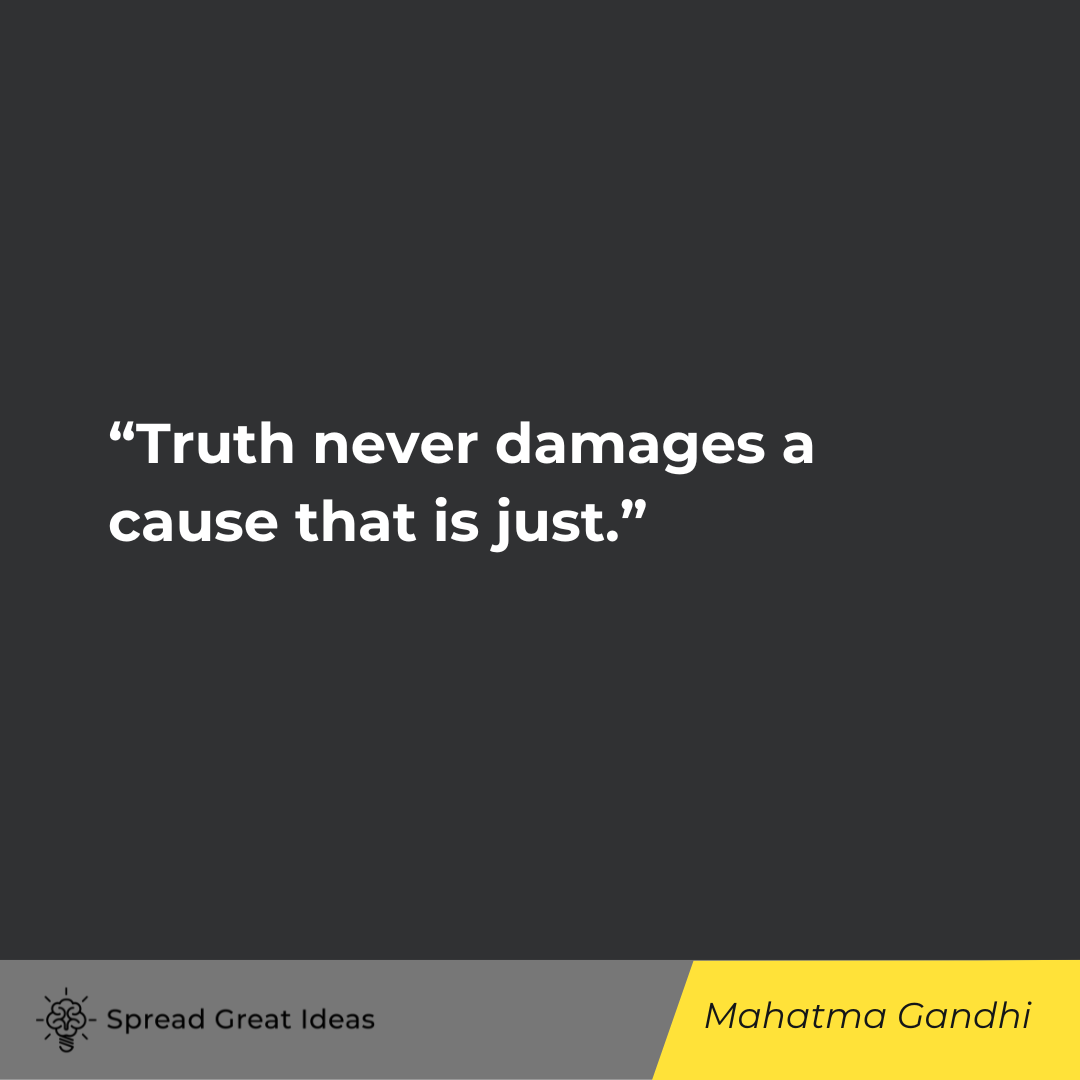
Ann Landers
“The naked truth is always better than the best-dressed lie.”
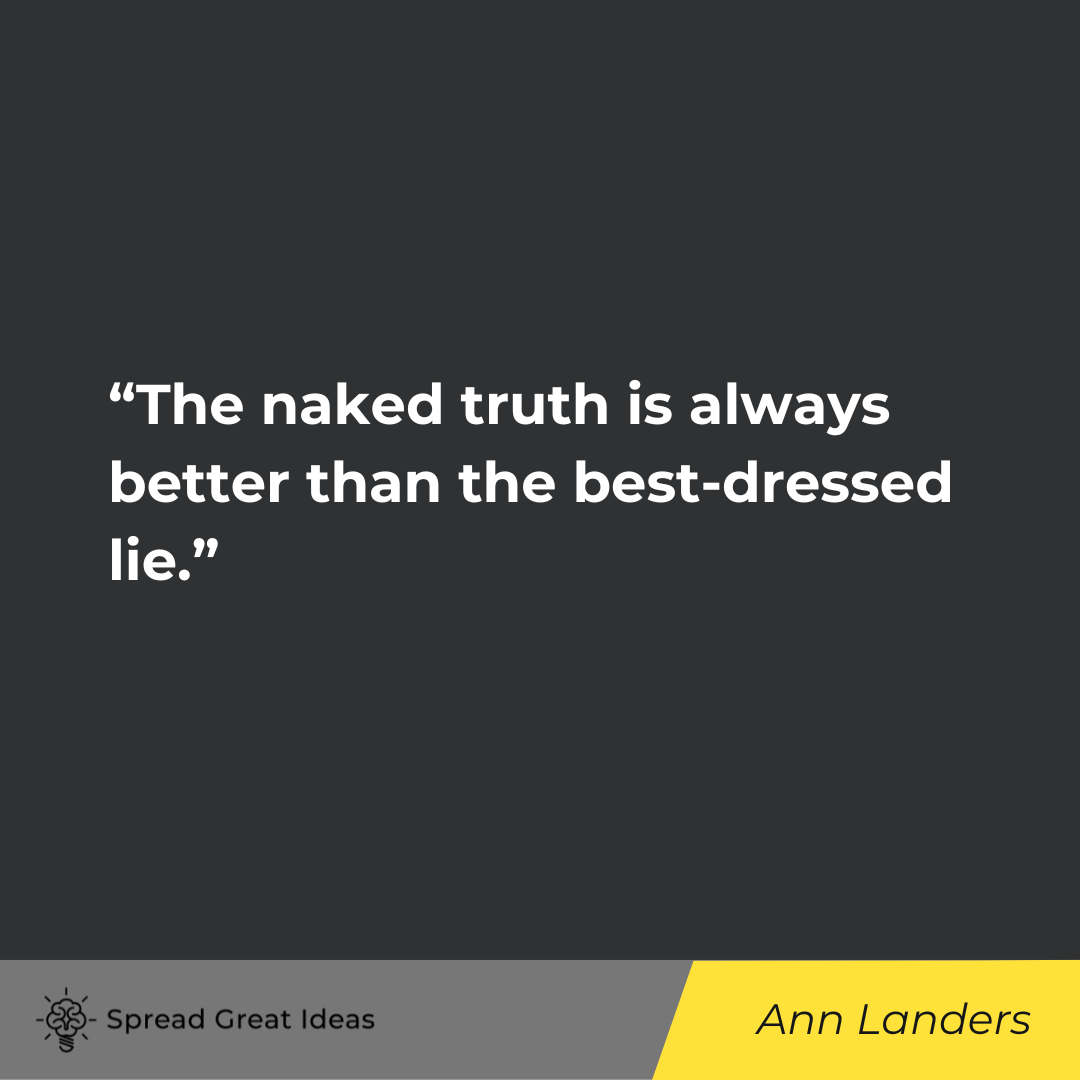
Jacques Abbadie
“You can fool some of the people all of the time, and all of the people some of the time, but you can not fool all of the people all of the time.”
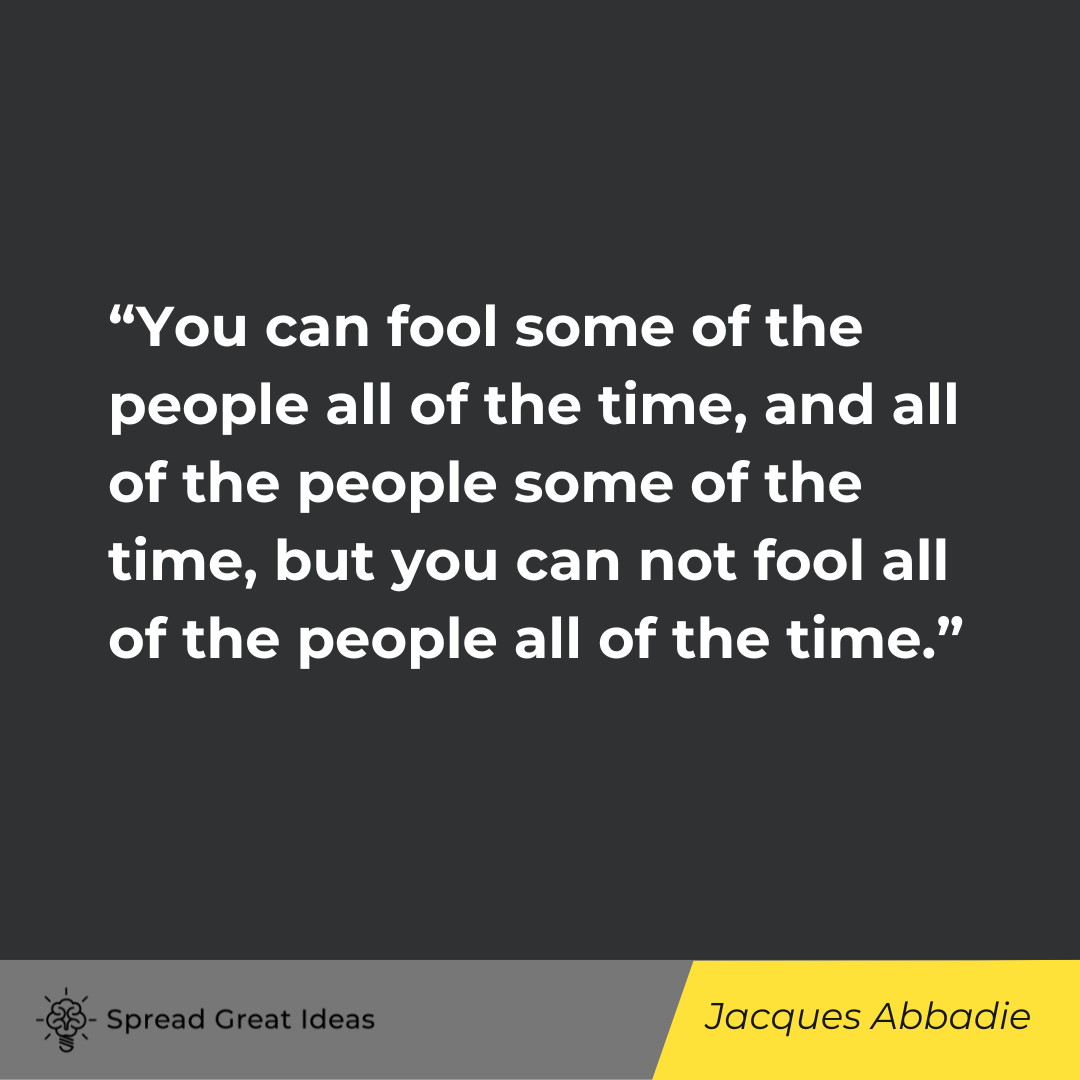
Albert Einstein
“Whoever is careless with the truth in small matters cannot be trusted with important matters.”
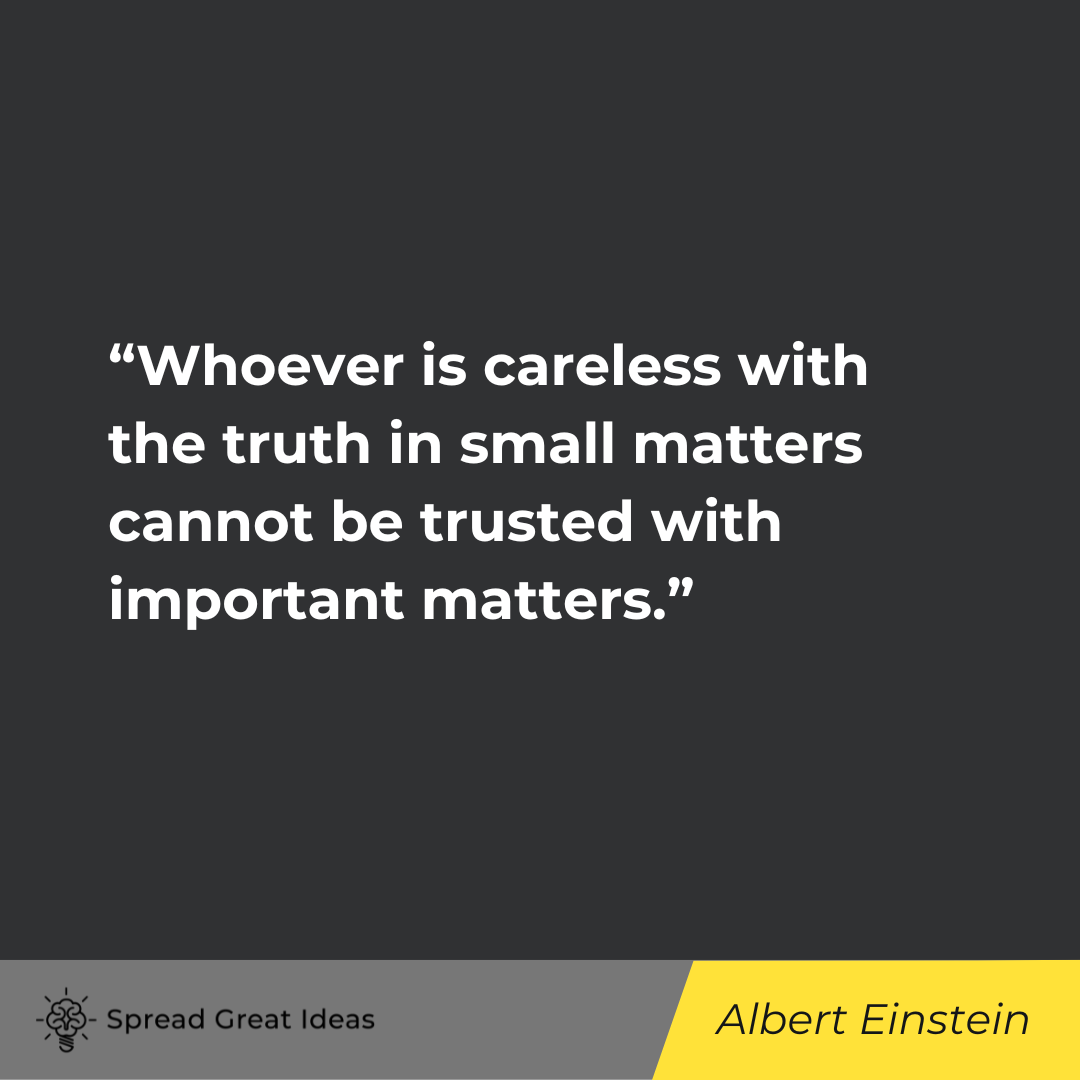
Spencer Johnson
“Integrity is telling myself the truth. And honesty is telling the truth to other people.”
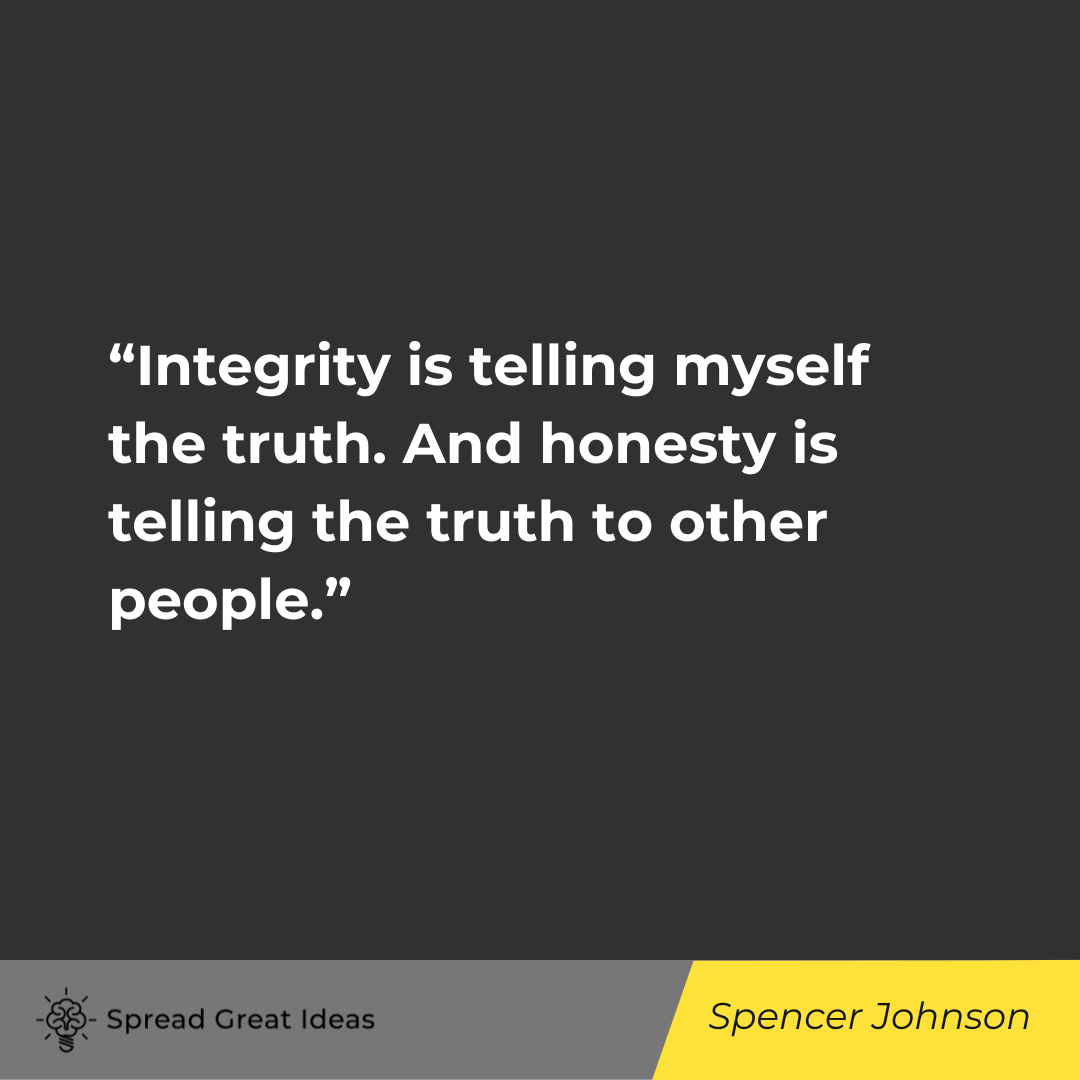
Patrick Henry
“For my part, whatever anguish of spirit it may cost, I am willing to know the whole truth; to know the worst, and to provide for it.”

Virginia Woolf
“If you do not tell the truth about yourself you cannot tell it about other people.”
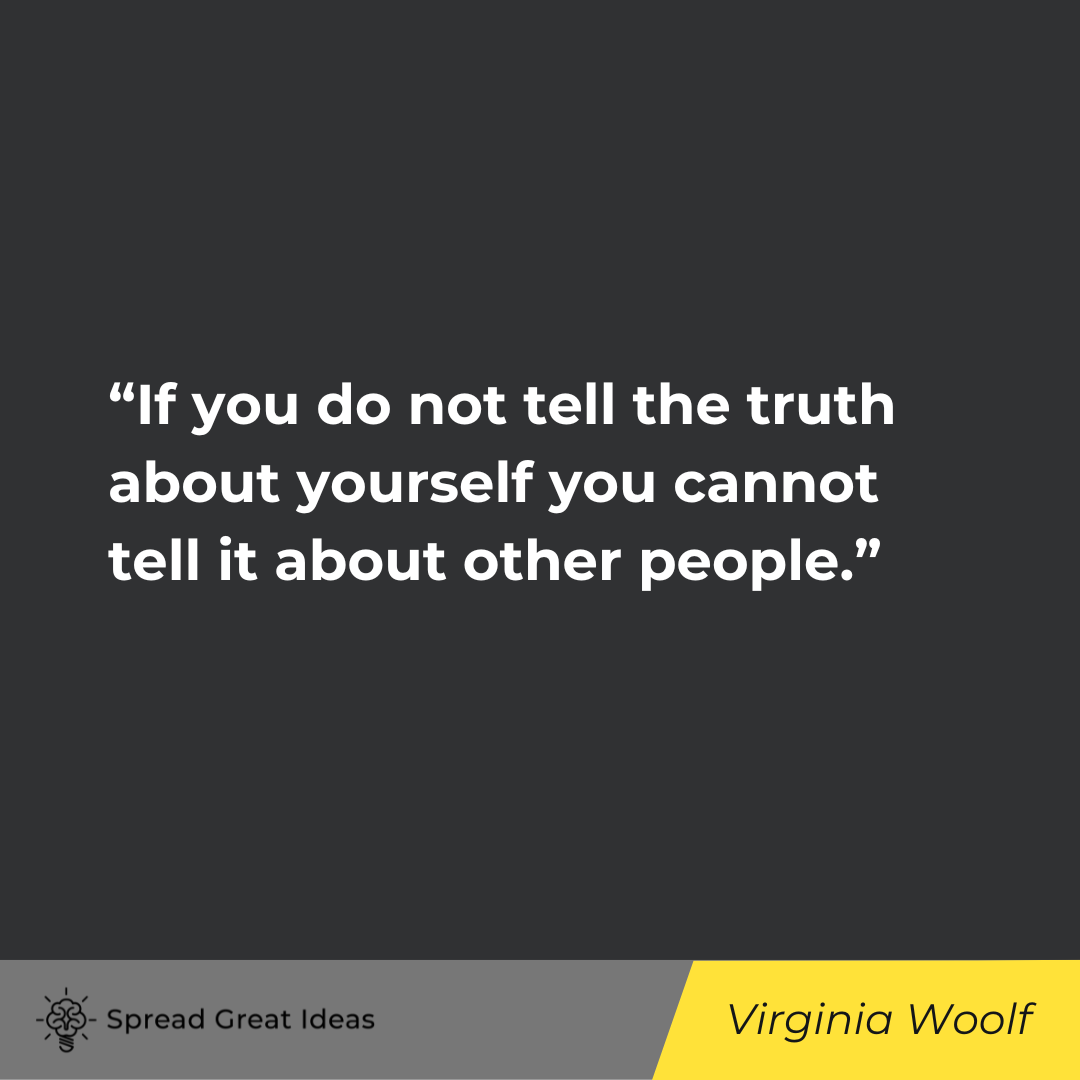
Marcus Aurelius
“Never esteem anything as of advantage to you that will make you break your word or lose your self-respect.”
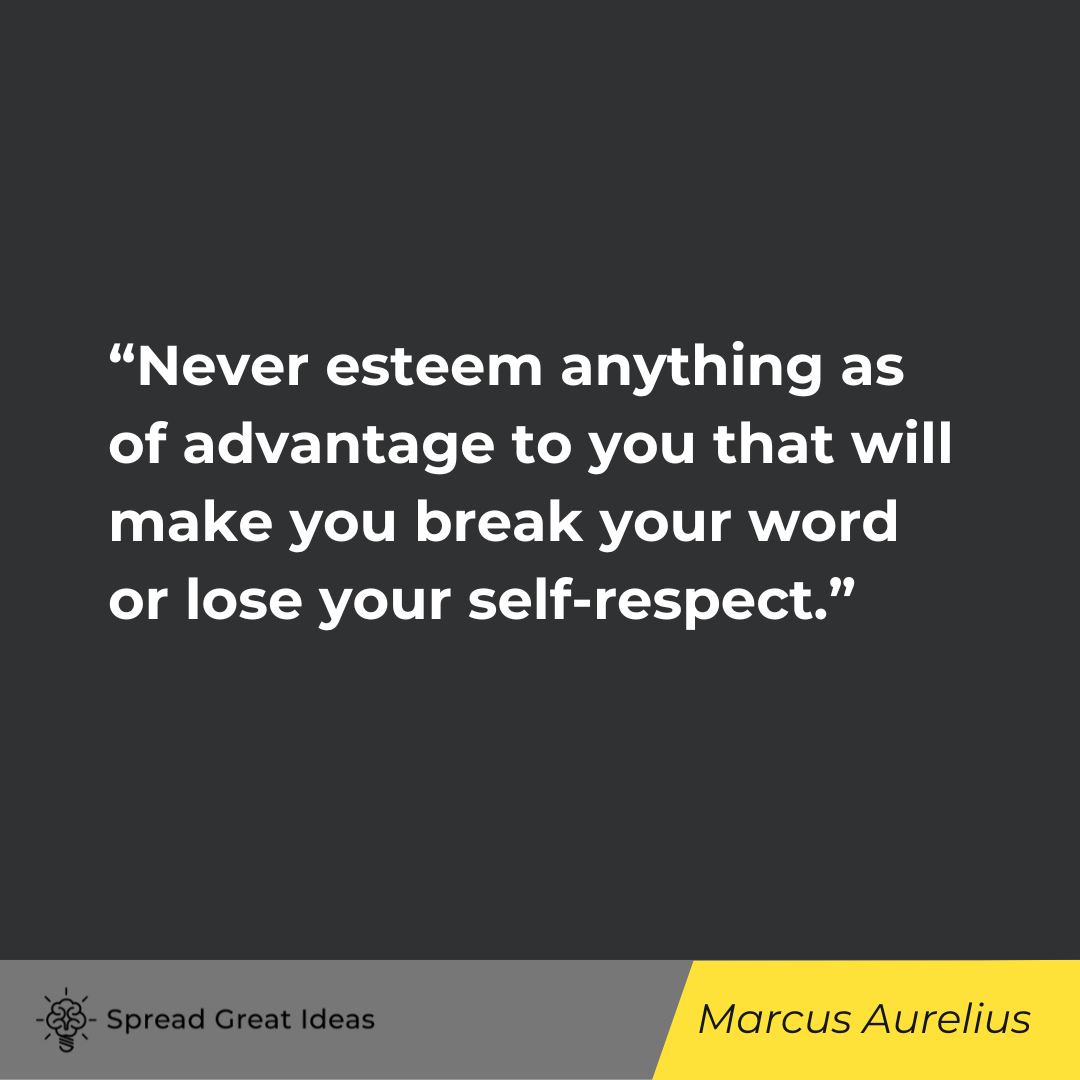
George R.R. Martin
“Most men would rather deny a hard truth than face it.”

Plato
“You should not honor men more than truth.”
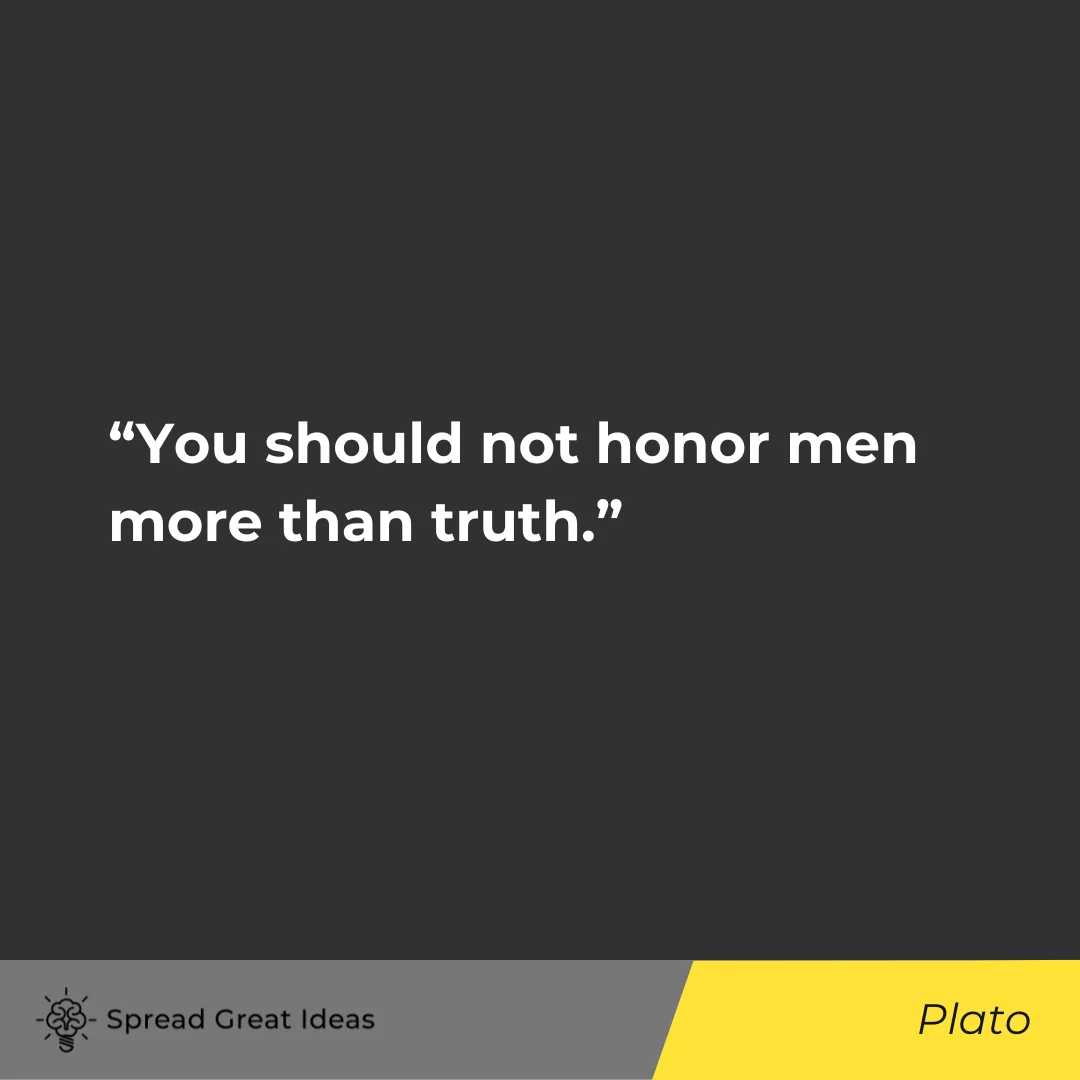
George Washington
“It is better to offer no excuse than a bad one.”
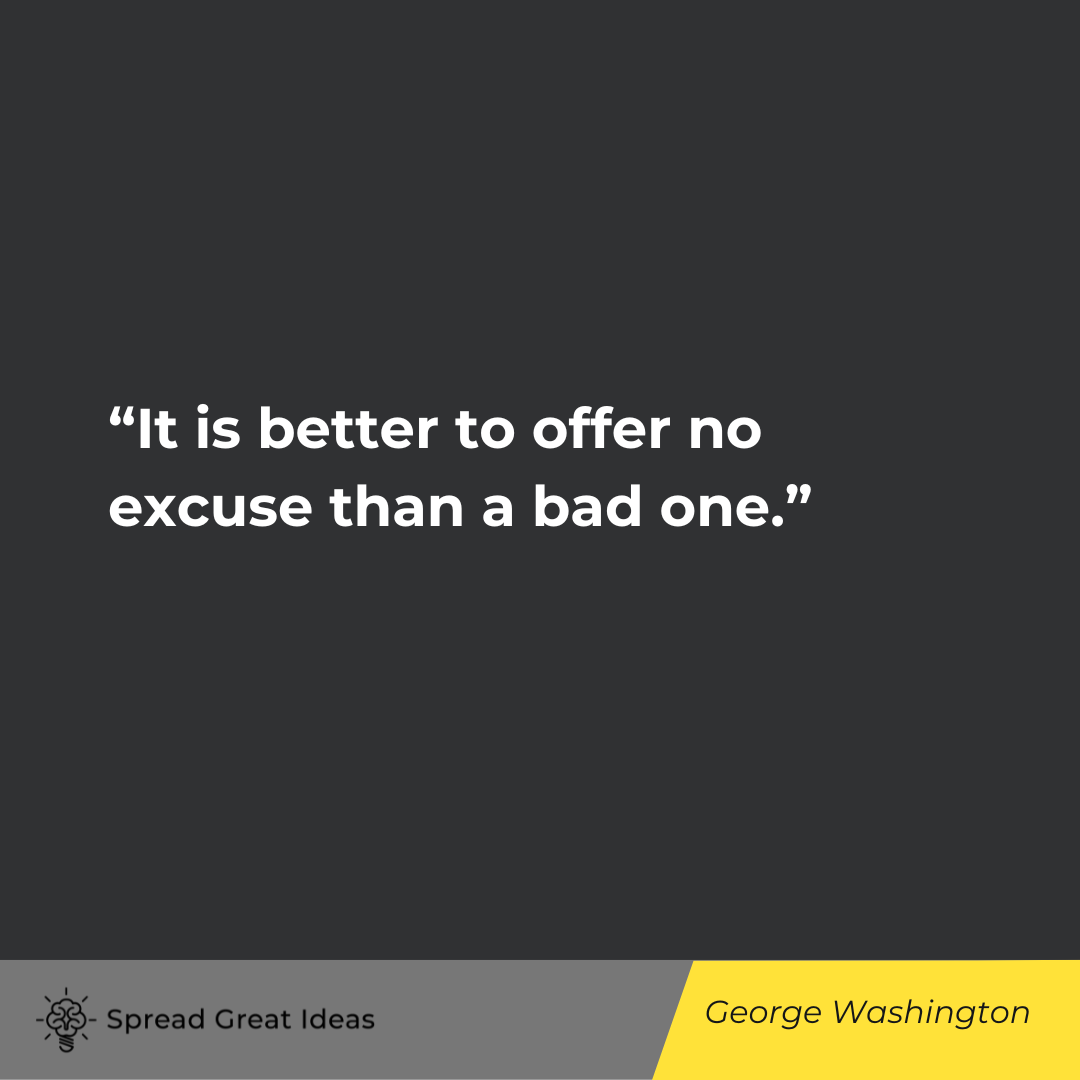
George Washington
“Truth will ultimately prevail where there is pains to bring it to light.”
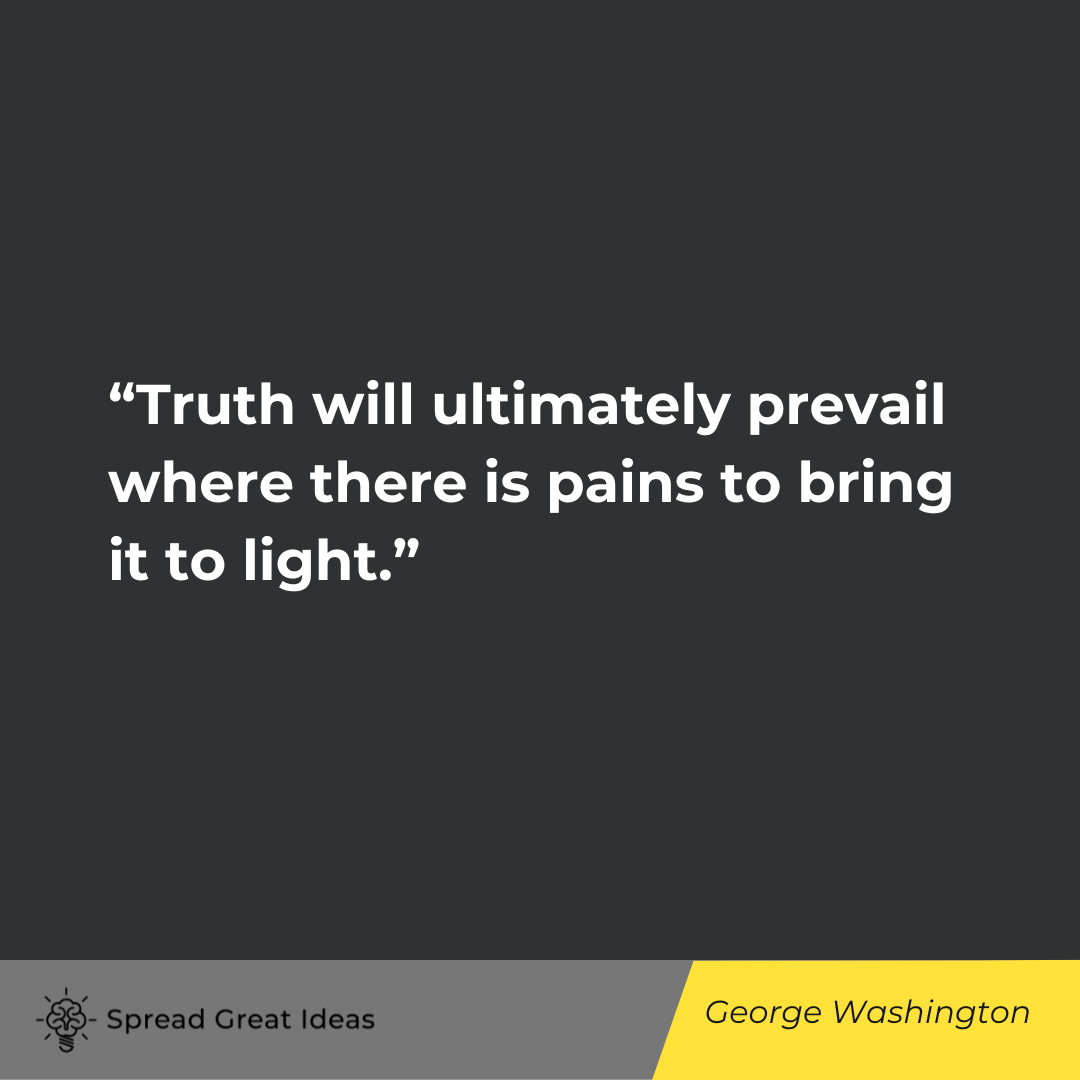
Fyodor Dostoevsky
“Nothing in this world is harder than speaking the truth, nothing easier than flattery.”
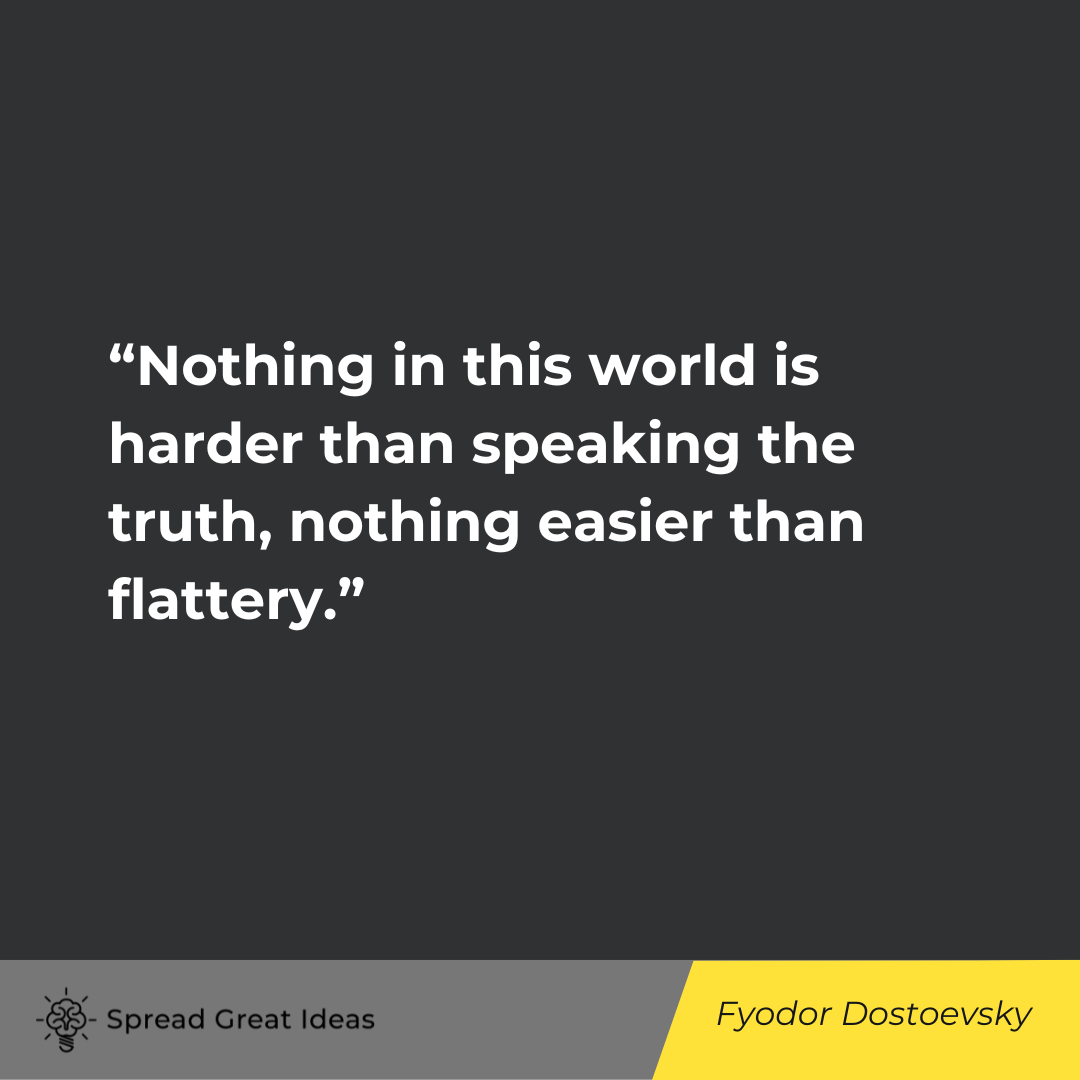
Dr. Seuss
“I meant what I said and I said what I meant.”
– Dr. Seuss, Horton Hatches the Egg
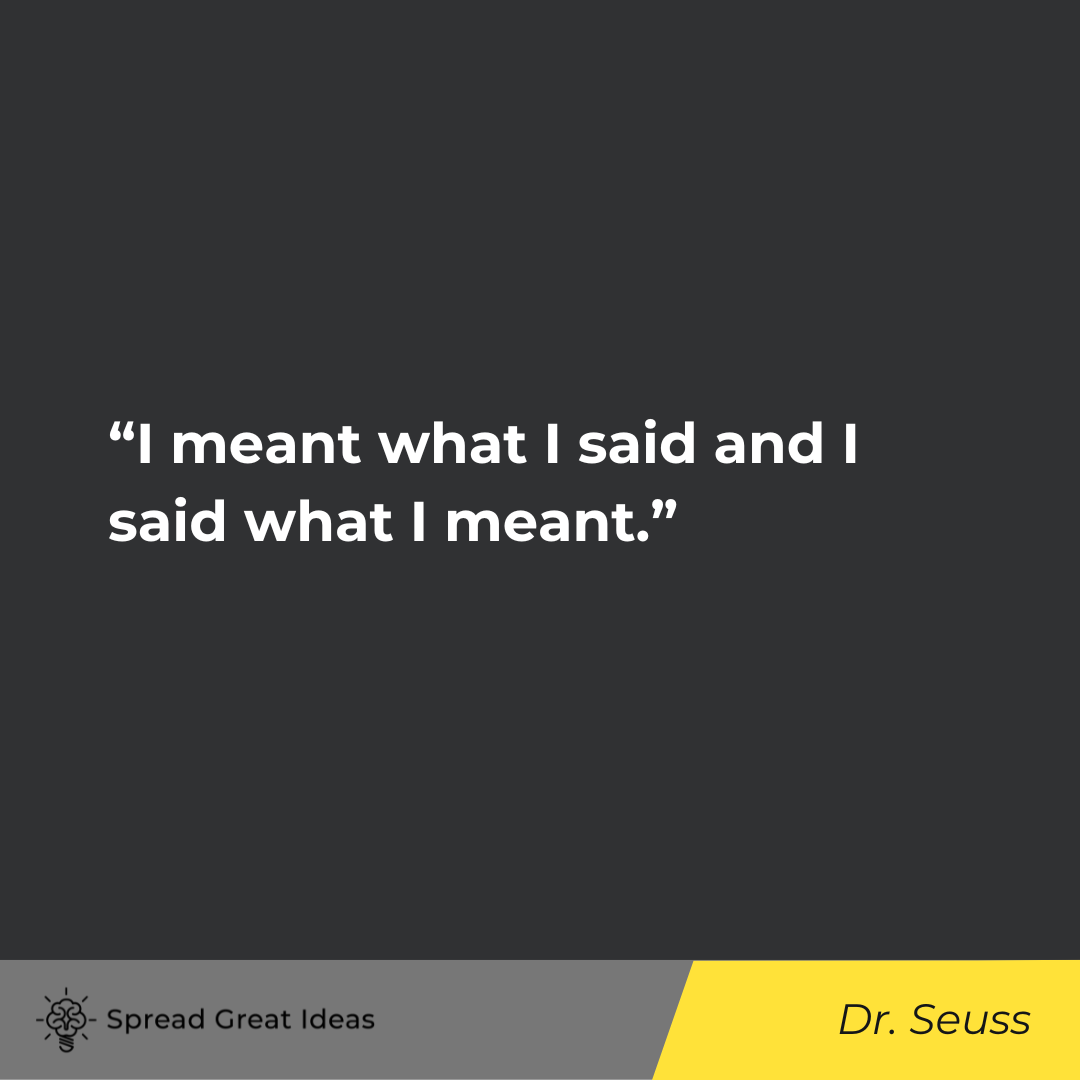
Aleksandr Solzhenitsyn
“The simple step of a courageous individual is not to take part in the lie. One word of truth outweighs the world.”
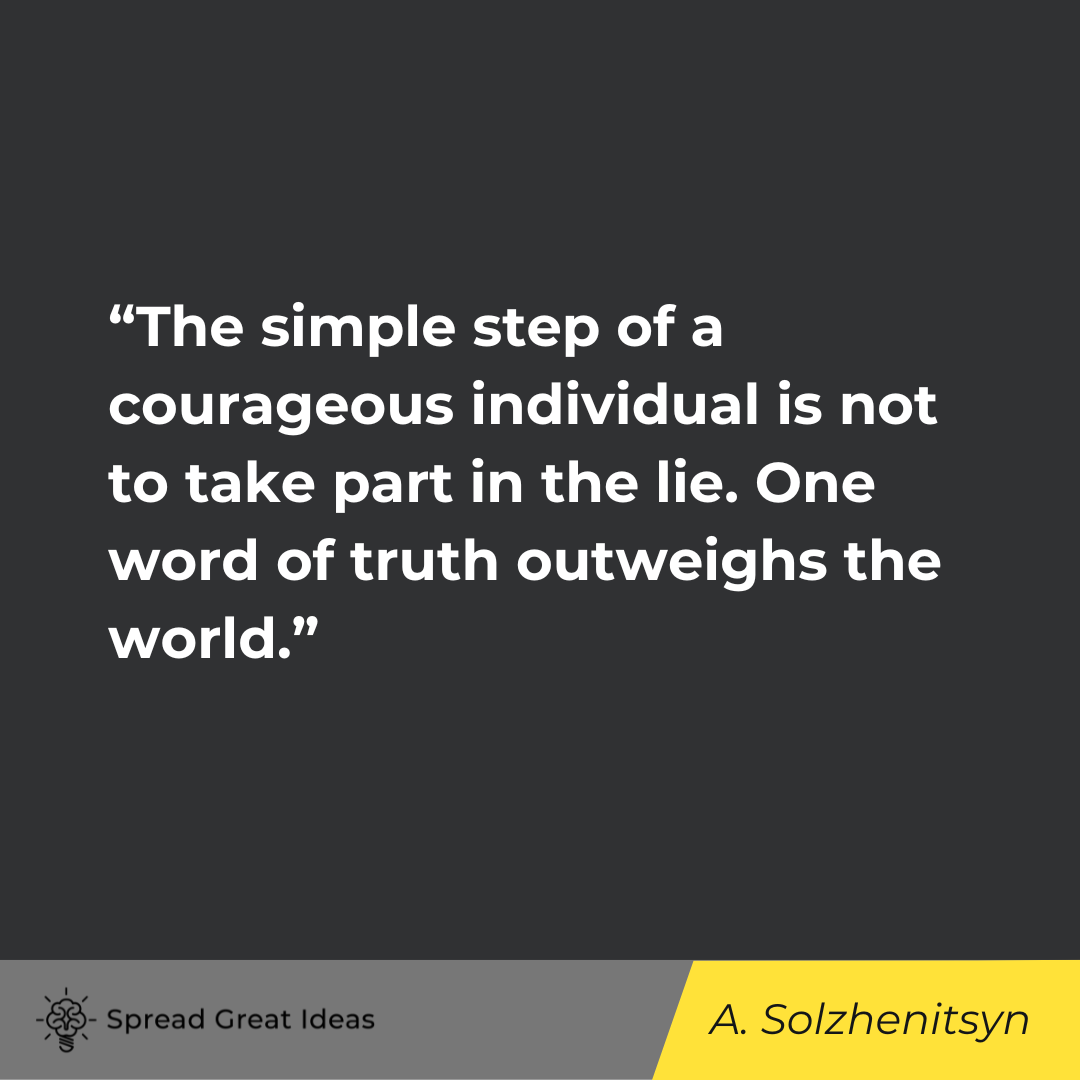
Billy Graham
“When wealth is lost, nothing is lost; when health is lost, something is lost; when character is lost, all is lost.”
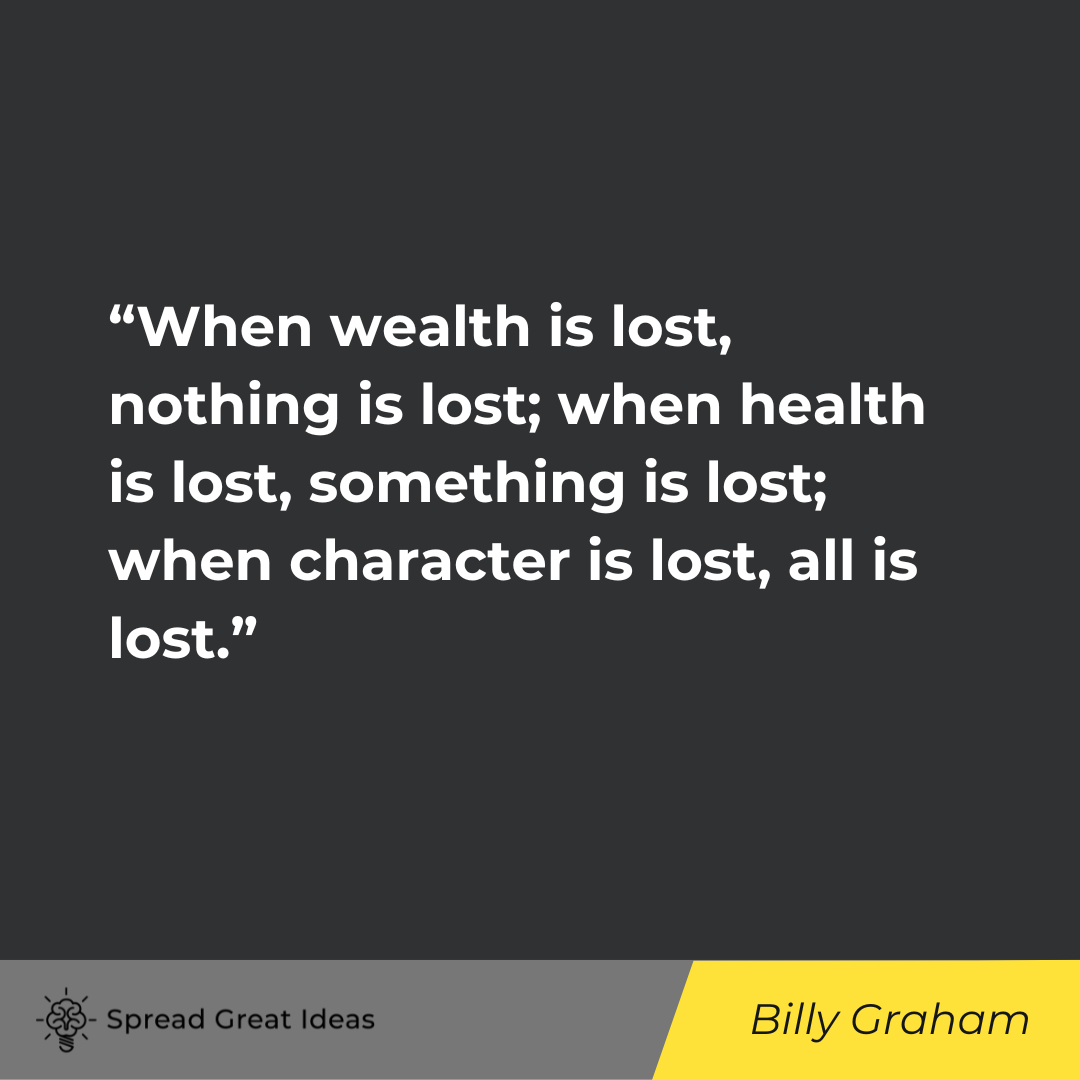
Nassim Taleb
“Reputation is for slaves. Honor, Courage, & Integrity is for the Self-Owned.”
– Nassim Taleb
